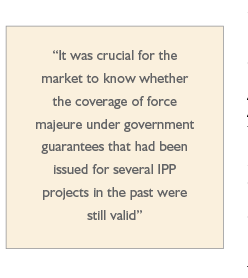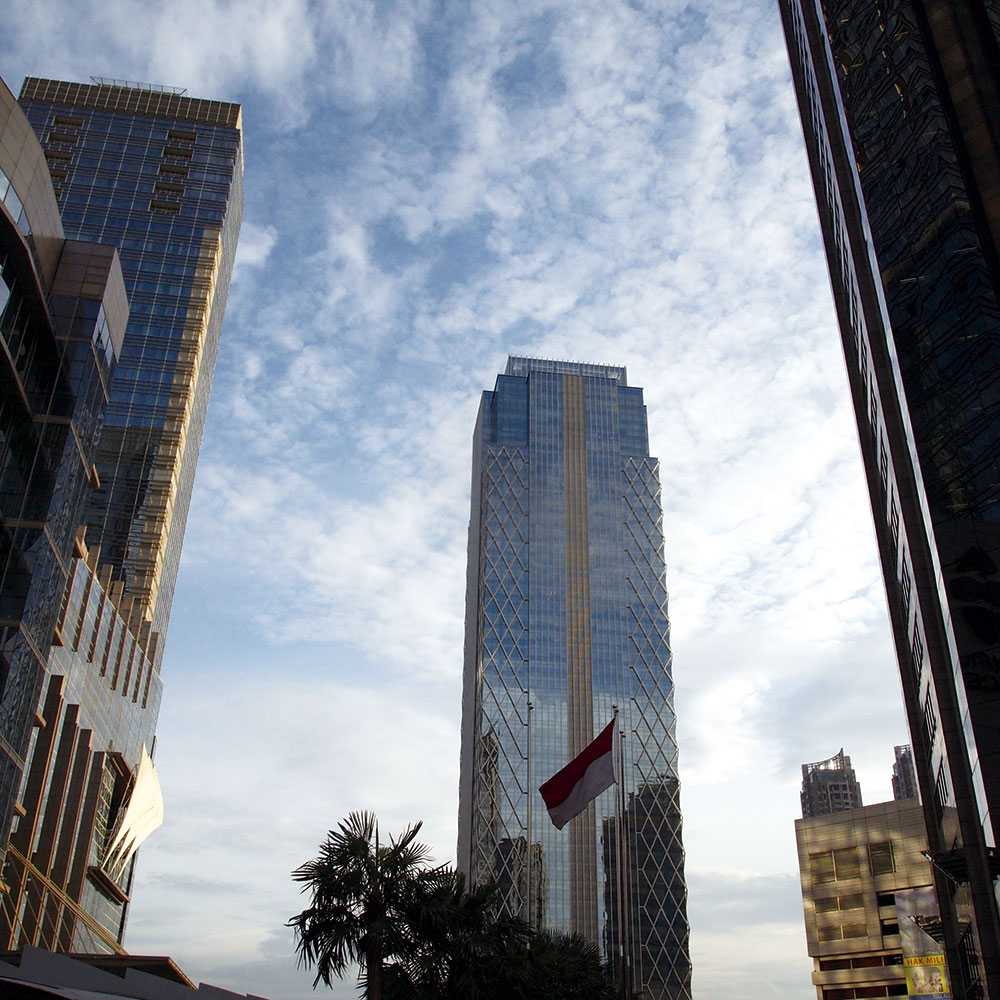
By Chandra Karina and Bagus Aditya, Lubis Ganie Sur owidjojo
The electricity industry is known to be a complicated but important industry, where external factors that are beyond the control of the parties involved can cause problems to the progress and/or cost of the projects. Some risks can be tackled through the proper application of risk management if they are known ahead. However, the same cannot be said for unforeseeable risks. The risk of government force majeure is one of these risks that can pose significant threats and uncertainties to a project.
The electricity business in Indonesia is unique, as the only two parties to the power purchase agreement (PPA) are usually a private sector developer, and a state-owned utility company (PLN). The basic principle of proper risk allocation is that risk should be assigned to the party best positioned to mitigate its impact. Naturally, in Indonesian PPA models, the state-owned entity shall take responsibility for actions and/or inactions of the state.
This means that PLN should fully accept the financial impact to developers for such events in the form of tariff adjustments or, in the case of prolonged delays of the project due to government force majeure (usually exceeding 180 days), PLN must purchase the project for an amount agreed in the PPA if the developer chooses to terminate the PPA. This has been the practice in Indonesia’s PPA models for years.
When the Minister of Energy and Mineral Resources issued Regulation No. 10 of 2017 on Main Provisions for Power Purchase Agreements (MEMR Regulation 10/2017) on January 23, 2017, there were strong reactions in the market. This regulation provides that both PLN and the developers will together take responsibility for government force majeure events, which are defined as changes in policies or regulations. This shifts the risk traditionally borne by PLN to the developer. The Article 28 paragraph 7 of MEMR Regulation 10/2017 implies that where the project is terminated due to a government force majeure, then PLN has no obligation to buy out the project.
MEMR Regulation No. 10/2017 sp arked more controversy because it affected risk allocation under the government guarantee for eligible independent power producer (IPP) projects in the form of business viability guarantee letters issued based on Minister of Finance Regulation No. 130/PMK.08/2016 of 2016 on The Procedures of The Issuance of Government Guarantee for the Acceleration of Electricity Infrastructure Provision (MoF Regulation 130/2016). Based on this regulation the government would guarantee PLN’s financial obligations, including its obligations arising from political risk. Political risk in the MoF Regulation 130/2016 is defined as unjustified government action or inaction and/or change in law. In other words, government force majeure as a project risk could be covered under the government guarantee. However, by the issuance of MEMR Regulation 10/2017 it became uncertain whether the government could still guarantee such risks for new projects for which PPAs had not yet been signed. In addition, it was crucial for the market to know whether the coverage of political/government force majeure under government guarantees that had been issued for several IPP projects in the past were still valid.
arked more controversy because it affected risk allocation under the government guarantee for eligible independent power producer (IPP) projects in the form of business viability guarantee letters issued based on Minister of Finance Regulation No. 130/PMK.08/2016 of 2016 on The Procedures of The Issuance of Government Guarantee for the Acceleration of Electricity Infrastructure Provision (MoF Regulation 130/2016). Based on this regulation the government would guarantee PLN’s financial obligations, including its obligations arising from political risk. Political risk in the MoF Regulation 130/2016 is defined as unjustified government action or inaction and/or change in law. In other words, government force majeure as a project risk could be covered under the government guarantee. However, by the issuance of MEMR Regulation 10/2017 it became uncertain whether the government could still guarantee such risks for new projects for which PPAs had not yet been signed. In addition, it was crucial for the market to know whether the coverage of political/government force majeure under government guarantees that had been issued for several IPP projects in the past were still valid.
Complaints from private sector developers resulted in the issuance of MEMR Regulation No. 49 of 2017 on the Amendment of Regulation 10/2017 on August 8, 2017 (MEMR Regulation 49/2017). There is significant change from MEMR Regulation 10/2017 to MEMR Regulation 49/2017. This amendment removed the risk of government force majeure from the list of risks that must be covered together by the developer and PLN. It means parties to the PPA are free to negotiate and can agree on risk allocation, particularly on government force majeure, as previously practised in other PPA models in Indonesia. It also means the political risk as mentioned in MoF Regulation 130/2016 can still be covered under the government guarantee.
Although, the issues within MEMR Regulation 10/2017 are not only concerning government force majeure risk being shifted to the developers, addressing this issue was indeed a completion of one major task in order to reassure developers and lenders that the new generation of PPAs in Indonesia still provide a model in which they are willing to invest.
![]()
E: chandra@lgslaw.co.id, bagus@lgslaw.co.id
T: (62-21) 831-5005, 831-5025
F: (62-21) 831-5015, 831-5018



















